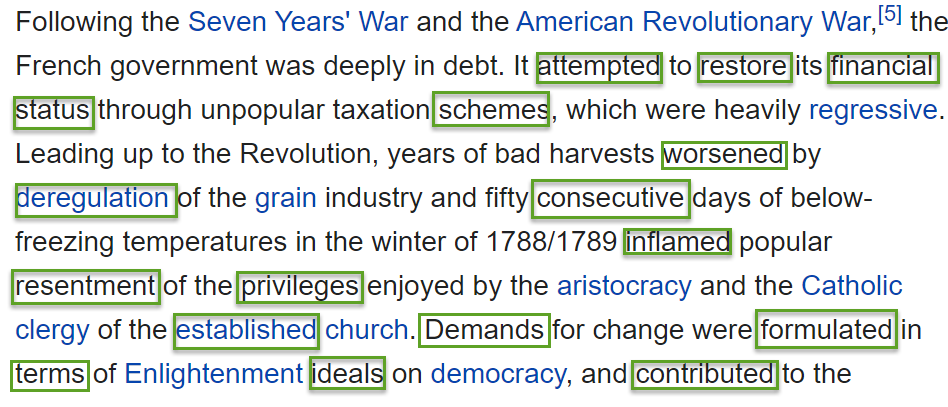General academic vocabulary
Introduction
Teachers have always known that a very significant part of learning a subject is learning its vocabulary. All students expect to learn subject-specific terms such as evaporation, denominator, reafforestation, etc.
These words are generally not such a problem for ESL students because they are usually the focus of the discussion in the classroom or are glossed in the textbook.
In fact, the words that ESL students typically have most difficulty with are the non-subject-specific words Such words are referred to on this site as general academic vocabulary. Others call this vocabulary semi-technical. that occur across all disciplines; words like duration, indicate, similarity, furthermore, rate, etc. These words cause ESL students problems for two reasons:
- subject teachers may assume that their students know these words and seldom teach them explicitly;
- most of the words are abstract, which makes them much more difficult to learn.
More examples of general academic vocabulary
The highlighted words in the following extract from a Wikipedia article about the French Revolution are examples of general academic vocabulary. These are words that can be found in the academic texts of all subjects, but not so commonly in everyday conversational English.

You will find another example on the page Which words are ESL students unlikely to know?
Implication for mainstream teachers:
@ Several studies have indicated the strong correlation between vocabulary knowledge and academic success. ~ Without a strong academic vocabulary ESL students will struggle to achieve success in the mainstream class. The main implication of this is as follows:
It is helpful simply to have an awareness of the problem stated above. This may explain why students are having difficulty comprehending a text about the water cycle, for example, when you know that they have fully understood the concepts of evaporation, condensation etc.
It would be useful from time to time to make explicit the meanings of some of the general academic vocabulary that seems to reoccur in your subject.
In fact, doing so will not only help the ESL students in your classes, but will also be of benefit to many native-speakers too, who may have only a hazy understanding of the terms.
Conclusion
It is highly desirable that mainstream teachers promote vocabulary acquisition. In this way, they not only ensure that ESL students make greater progress in the mainstream subject, but they also help students develop their general English proficiency.
Further reading
Here you can find more about this topic as well as a list of common academic words that students can learn and test themselves on.
And here is a page that briefly discusses and exemplifies the grammatical features of academic writing.